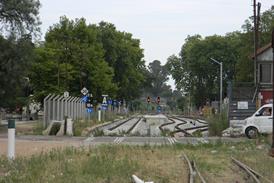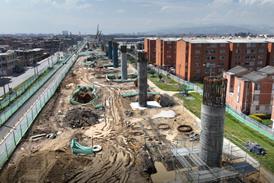ON JULY 17 Britain’s Secretary of State for Transport Stephen Byers dismissed Bob Kiley as Chairman of London Regional Transport, parent company of London Underground. In his place Byers reappointed Sir Malcolm Bates, who had held the post until Kiley was named as his successor on May 10 by Deputy Prime Minister John Prescott, at that time holder of the transport portfolio.
Kiley had been tasked with finalising the London Underground Public-Private-Partnership contracts, but at the time of his appointment Kiley had expressed reservations that ’satisfactory modifications to the PPP to meet my concerns’ might not be possible. On June 29 he wrote to Prime Minister Tony Blair ’with most considerable regret’ to advise him that he had concluded ’it will not be possible to agree a contract with the PPP bidders consistent with provisions of our May 4 Memorandum of Agreement’.
This agreement required Kiley to seek unified management control of LU while remaining in financial terms ’within the existing envelope of the preferred bids’, to adhere to the existing procurement process, and to retain a performance regime transferring to the bidders ’responsibility for whole-life asset management and costs’. This was incompatible with Kiley’s demand for unified management control that would give LU direct charge of core maintenance functions.
Byers announced on July 5 that he intended to proceed with the PPP, which Kiley found ’deeply regrettable’. Kiley went further, saying that ’there is a yawning chasm between this convoluted 30-year privatisation and the single-point accountability for investment and service delivery the Underground’s passengers deserve. No amount of contractual changes to the PPP will bridge the divide.’
In a statement on July 17 Byers accused Kiley of trying ’to use his Board position to block negotiations with the bidders since I announced the government’s decision on July 5. He has, without authority from the Board, issued instructions to senior management to halt the negotiations. This is unacceptable.’ Byers also said he had ’received a letter signed on behalf of a majority of the London Transport Board saying that they cannot work with Bob Kiley and thus it is impossible for the London Transport Board to function effectively. In light of this, I have decided to end his appointment.’
Not that the issue is likely to end there. Kiley enjoys the support of Mayor of London Ken Livingstone, who had appointed him Commissioner of Transport for London last October. The mayor is committed to fighting the PPP, and he confirmed at the launch of The Mayor’s Transport Strategy on July 10 that ’we will be challenging the PPP in the courts’; hearings for a judicial review are due in the High Court on July 23.
The Mayor’s Transport Strategy is a statutory document which formally adopts the Kiley formula for rehabilitating London Underground and rejects the PPP. Lest we forget, readers should know that it also sets out detailed plans for improving London’s transport. Proposals include the imposition from 2003 of charges for motorists entering the central area between 07.00 and 19.00 on Mondays to Fridays, generating net proceeds of £200m a year.
A programme of investment in public transport is intended to raise capacity of the Underground and London area main line networks by 40% by 2010. A Rail Plan for London will be developed jointly by Transport for London and the Strategic Rail Authority, and the two bodies will set up a joint company to take forward projects that include extensions to LU’s East London line for completion by 2006. The north-south Thameslink 2000 scheme is to be finished by 2008 and the east-west CrossRail scheme by 2011. A Hackney - Southwest route will follow by 2015.
There are three ’intermediate mode’ corridors where the merits of trams will be weighed against bus options: Abbey Wood to Greenwich in the east, Uxbridge to Shepherd’s Bush in the west, and Camden to Brixton and Peckham via King’s Cross, Euston and Waterloo.




















